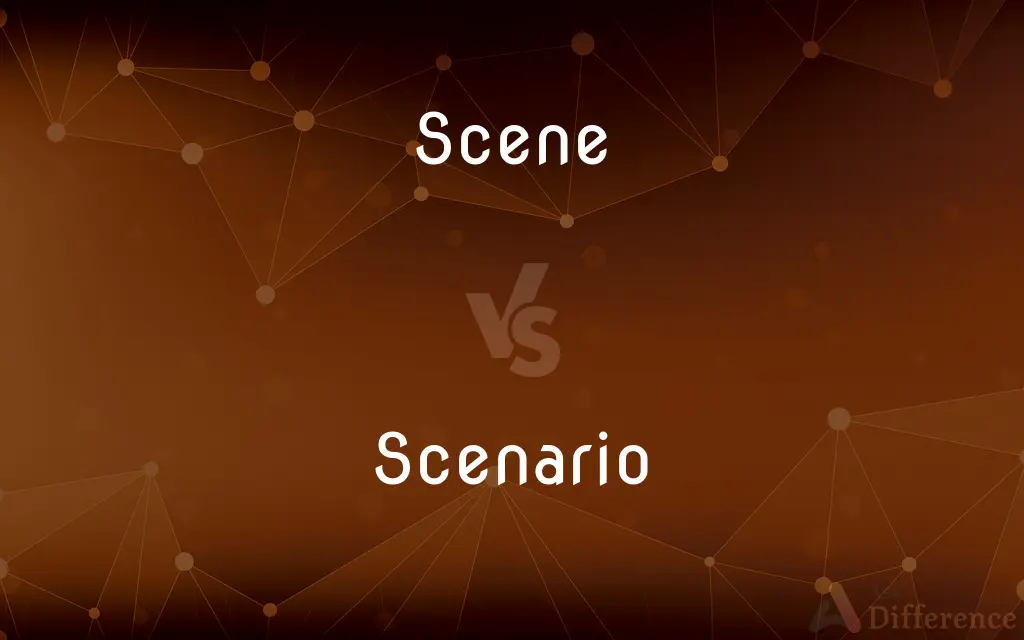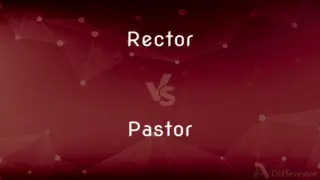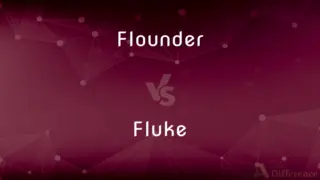Scene vs. Scenario — What's the Difference?
By Maham Liaqat & Fiza Rafique — Updated on February 24, 2024
A scene is a specific part of a narrative or performance, detailing a particular setting or event, while a scenario outlines a hypothetical situation or sequence of events, often used for planning or analysis.

Difference Between Scene and Scenario
Table of Contents
ADVERTISEMENT
Key Differences
A scene, often used in the context of theater, film, or literature, refers to a segment within a larger narrative that unfolds in a specific location and time, focusing on the interactions and dialogues between characters. In contrast, a scenario is a broader term that describes a projected sequence of events, potentially encompassing multiple scenes or situations, and is used to explore possible outcomes in various fields such as business, emergency planning, and storytelling.
Scenes are fundamental building blocks in storytelling, creating a visual and emotional landscape for the audience, and are characterized by their immediate setting, action, and dialogue. Scenarios, however, are more about the narrative arc and the "what ifs" of a situation, allowing planners, writers, and strategists to consider different futures or alternatives based on varying conditions or decisions.
A scene is about the "here and now" of a story, providing a detailed snapshot of a moment, whereas a scenario is about the "what could be," offering a framework for understanding potential developments or challenges. This distinction highlights the scene's role in immersing the audience in the narrative moment, versus the scenario's function in conceptualizing broader possibilities and strategies.
In practical application, scenes are crafted to convey specific pieces of a story, often with a focus on emotional impact and character development. Scenarios, by contrast, are used to anticipate and prepare for possible events, from strategic business moves to emergency response plans, emphasizing the importance of foresight and contingency planning.
Understanding the interplay between scenes and scenarios can enhance narrative depth and strategic planning. Scenes bring a narrative to life, making abstract ideas tangible and relatable, while scenarios help in navigating the uncertainties of the future, offering a structured way to consider and prepare for various outcomes.
ADVERTISEMENT
Comparison Chart
Definition
A part of a narrative with specific setting and action
A hypothetical sequence of events for planning or analysis
Context
Theater, film, literature
Business, emergency planning, storytelling
Focus
Immediate setting, action, and dialogue
Potential outcomes and "what ifs"
Purpose
To advance the narrative and develop characters
To explore and prepare for different future possibilities
Key Elements
Location, time, characters, dialogue
Conditions, decisions, potential developments
Compare with Definitions
Scene
A segment of a story occurring in a single location and time.
The opening scene set in a quiet village captured everyone's attention.
Scenario
Describes a hypothetical situation for planning purposes.
The team discussed various scenarios for the product launch.
Scene
Essential for visual storytelling in films and plays.
The director meticulously planned each scene for maximum impact.
Scenario
Used to anticipate possible future events.
Emergency drills are based on realistic disaster scenarios.
Scene
Can evoke a range of emotions through detailed settings.
The dimly lit scene added a layer of suspense.
Scenario
Helps in strategizing and decision-making.
The manager outlined several scenarios for tackling the budget deficit.
Scene
Involves character interaction and dialogue.
The scene where they reconcile was truly moving.
Scenario
Can encompass multiple potential outcomes.
We explored best-case and worst-case scenarios.
Scene
Contributes to the overall narrative arc.
That scene was crucial for understanding the protagonist's motives.
Scenario
Often involves a series of connected events or actions.
The scenario depicted a chain reaction leading to a market crash.
Scene
The location, time, circumstances, etc., in which something occurs, or in which the action of a story, play, or the like, is set up
Scenario
An outline of the plot of a dramatic or literary work.
Scene
The place where an action or event occurs
The scene of the crime.
Scenario
An outline or model of an expected or supposed sequence of events.
Scene
Something seen by a viewer; a view or prospect.
Scenario
A postulated sequence of possible events;
Planners developed several scenarios in case of an attack
Scene
The place in which the action of a play, movie, novel, or other narrative occurs; a setting.
Scenario
An expected or supposed situation or sequence of events
"It was almost impossible to conceive a scenario in which he would fail to qualify for at least three Olympic events" (Jeremy Schaap).
Scene
The location of an event that attracts attention.
The scene of the crime
Scene
(transitive) To exhibit as a scene; to make a scene of; to display.
Scene
An incident (real or imaginary);
Their parting was a sad scene
Scene
The visual percept of a region;
The most desirable feature of the park are the beautiful views
Common Curiosities
Why are scenarios important in emergency planning?
They help organizations prepare for various potential emergencies, ensuring readiness and effective response strategies.
What makes a scene effective in a film?
Effective scenes often combine compelling dialogue, strong character development, and visual storytelling to engage the audience.
What is the purpose of a scene in a story?
To advance the plot, develop characters, and provide a visual and emotional experience within a specific setting.
How is a scenario used in business planning?
To anticipate future challenges, opportunities, and outcomes, allowing businesses to prepare strategic responses.
Can a scenario include multiple scenes?
Yes, a scenario can outline a sequence of events that encompasses multiple scenes, especially in narrative contexts.
Is a scene limited to visual media?
No, scenes are integral to written narratives as well, providing detailed snapshots of the story's action and setting.
How do scenarios aid in strategic decision-making?
By outlining the implications of different decisions, scenarios help leaders evaluate options and plan more effectively.
What's the difference between a scenario and a forecast?
A scenario explores various possible outcomes, while a forecast predicts a specific future based on current trends and data.
What elements are essential for constructing a scene?
Location, time, characters, action, and dialogue are key elements for building a scene.
Can scenarios be used in education?
Yes, scenarios can help students explore complex topics through hypothetical situations, enhancing problem-solving skills.
How do filmmakers use scenes to build tension?
Through pacing, music, lighting, and character dynamics, filmmakers craft scenes that progressively build suspense.
How does a writer create a powerful scene?
By focusing on vivid descriptions, meaningful character interactions, and significant plot advancements.
What role do scenarios play in risk management?
They allow organizations to identify potential risks and develop mitigation strategies by considering various future events.
Can a scenario be based on past events?
Yes, scenarios can be constructed from historical events to analyze outcomes or learn from past situations.
How can scenarios help in personal goal setting?
By envisioning different paths and outcomes, individuals can better plan their actions and prepare for challenges.
Share Your Discovery

Previous Comparison
Rector vs. Pastor
Next Comparison
Flounder vs. FlukeAuthor Spotlight
Written by
Maham LiaqatCo-written by
Fiza RafiqueFiza Rafique is a skilled content writer at AskDifference.com, where she meticulously refines and enhances written pieces. Drawing from her vast editorial expertise, Fiza ensures clarity, accuracy, and precision in every article. Passionate about language, she continually seeks to elevate the quality of content for readers worldwide.
















































